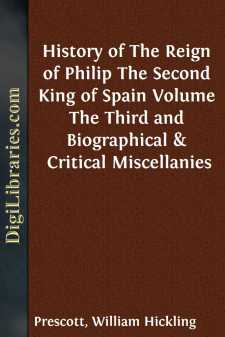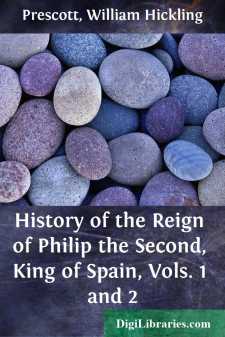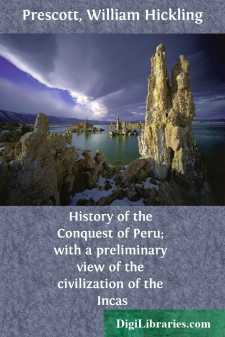Categories
- Antiques & Collectibles 13
- Architecture 36
- Art 48
- Bibles 22
- Biography & Autobiography 816
- Body, Mind & Spirit 145
- Business & Economics 28
- Children's Books 17
- Children's Fiction 14
- Computers 4
- Cooking 94
- Crafts & Hobbies 4
- Drama 346
- Education 58
- Family & Relationships 59
- Fiction 11834
- Foreign Language Study 3
- Games 19
- Gardening 17
- Health & Fitness 34
- History 1378
- House & Home 1
- Humor 147
- Juvenile Fiction 1873
- Juvenile Nonfiction 202
- Language Arts & Disciplines 89
- Law 16
- Literary Collections 686
- Literary Criticism 179
- Mathematics 13
- Medical 41
- Music 40
- Nature 179
- Non-Classifiable 1768
- Performing Arts 7
- Periodicals 1453
- Philosophy 66
- Photography 2
- Poetry 897
- Political Science 203
- Psychology 45
- Reference 154
- Religion 516
- Science 126
- Self-Help 85
- Social Science 82
- Sports & Recreation 34
- Study Aids 3
- Technology & Engineering 59
- Transportation 23
- Travel 463
- True Crime 29
Our website is made possible by displaying online advertisements to our visitors.
Please consider supporting us by disabling your ad blocker.
History of The Reign of Philip The Second King of Spain Volume The Third and Biographical & Critical Miscellanies
Description:
Excerpt
CHAPTER I.
THE MOORS OF SPAIN.
Conquest of Spain by the Arabs.—Slow Recovery by the Spaniards.—Efforts to convert the Moslems.—Their Homes in the Alpujarras.—Their Treatment by the Government.—The Minister Espinosa.—Edict against the Moriscoes.—Their ineffectual Remonstrance.
1566, 1567.
It was in the beginning of the eighth century, in the year 711, that the Arabs, filled with the spirit of conquest which had been breathed into them by their warlike apostle, after traversing the southern shores of the Mediterranean, reached the borders of those straits that separate Africa from Europe. Here they paused for a moment, before carrying their banners into a strange and unknown quarter of the globe. It was but for a moment, however, when, with accumulated strength, they descended on the sunny fields of Andalusia, met the whole Gothic array on the banks of the Guadalete, and, after that fatal battle, in which King Roderick fell with the flower of his nobility, spread themselves, like an army of locusts, over every part of the Peninsula. Three years sufficed for the conquest of the country,—except that small corner in the north, where a remnant of the Goths contrived to maintain a savage independence, and where the rudeness of the soil held out to the Saracens no temptation to follow them.
It was much the same story that was repeated, more than three centuries later, by the Norman conquerors in England. The battle of Hastings was to that kingdom what the battle of the Guadalete was to Spain; though the Norman barons, as they rode over the prostrate land, dictated terms to the vanquished of a sterner character than those granted by the Saracens.
But whatever resemblance there may be in the general outlines of the two conquests, there is none in the results that followed. In England the Norman and the Saxon, sprung from a common stock, could not permanently be kept asunder by the barrier which at first was naturally interposed between the conqueror and the conquered; and in less, probably, than three centuries after the invasion, the two nations had imperceptibly melted into one; so that the Englishman of that day might trace the current that flowed through his veins to both a Norman and a Saxon origin.
It was far otherwise in Spain, where difference of race, of religion, of national tradition, of moral and physical organization, placed a gulf between the victors and the vanquished too wide to be overleaped. It is true, indeed, that very many of the natives, accepting the liberal terms offered by the Saracens, preferred remaining in the genial clime of the south to sharing the rude independence of their brethren in the Asturias, and that, in the course of time, intermarriages, to some extent, took place between them and their Moslem conquerors. To what extent cannot now be known. The intercourse was certainly far greater than that between our New-England ancestors and the Indian race which they found in possession of the soil,—that ill-fated race, which seems to have shrunk from the touch of civilization, and to have passed away before it like the leaves of the forest before the breath of winter. The union was probably not so intimate as that which existed between the old Spaniards and the semi-civilized tribes that occupied the plateau of Mexico, whose descendants, at this day, are to be there seen filling the highest places, both social and political, and whose especial boast it is to have sprung from the countrymen of Montezuma.
The very anxiety shown by the modern Spaniard to prove that only the sangre azul—"blue blood"—flows through his veins, uncontaminated by any Moorish or Jewish taint, may be thought to afford some evidence of the intimacy which once existed between his forefathers and the tribes of Eastern origin. However this may be, it is certain that no length of time ever served, in the eye of the Spaniard, to give the Moslem invader a title to the soil; and after the lapse of nearly eight centuries,—as long a period as that which has passed since the Norman conquest,—the Arabs were still looked upon as intruders, whom it was the sacred duty of the Spaniards to exterminate or to expel from the land.
This, then, was their mission. And it is interesting to see how faithfully they fulfilled it; and during the long period of the Middle Ages, when other nations were occupied with base feudal quarrels or border warfare, it is curious to observe the Spaniard intent on the one great object of reclaiming his country from the possession of the infidel. It was a work of time; and his progress, at first almost imperceptible, was to be measured by centuries. By the end of the ninth century it had reached as far as the Ebro and the Douro. By the middle of the eleventh, the victorious banner of the Cid had penetrated to the Tagus. The fortunes of Christian Spain trembled in the balance on the great day of Navas de Tolosa, which gave a permanent ascendancy to the Castilian arms; and by the middle of the thirteenth century the campaigns of James the First of Aragon, and of St....







